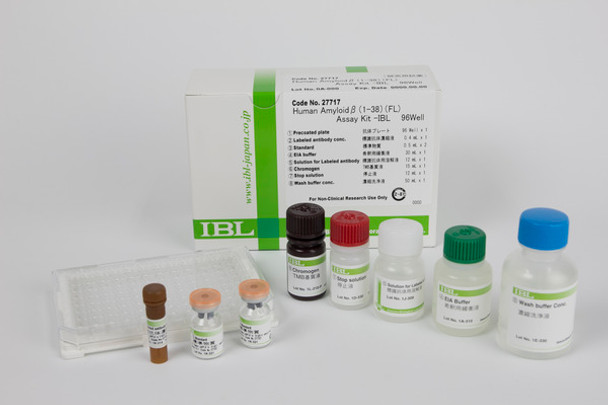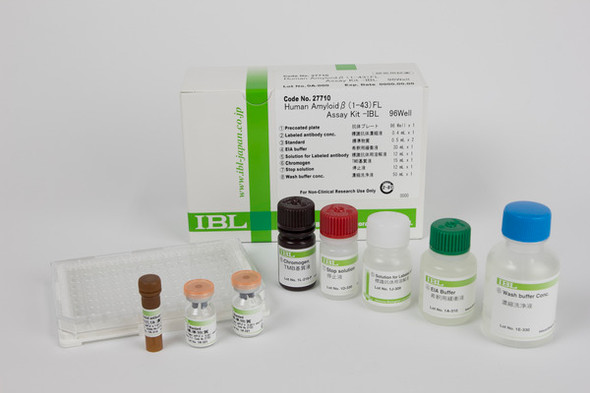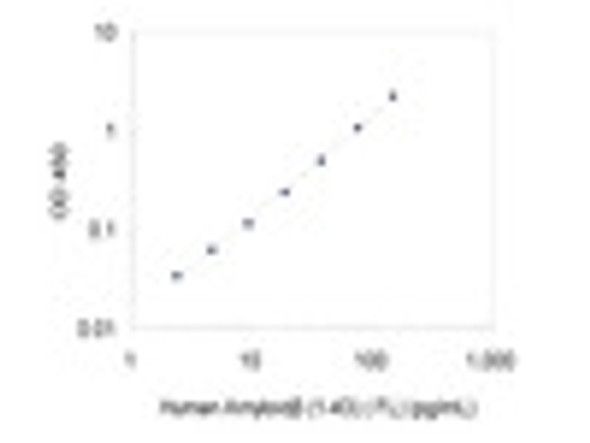Human Amyloidβ (1-38) (FL) Assay Kit | 27717
- SKU:
- 27717
- Availability:
- In Stock
- Intended Use:
- Research reagents
- Measuring Method:
- ELISA
- Sample Types:
- Human
- Measuring Samples:
- CSF, Cell culture supernatant
- Measurement Range:
- 9.38 - 600 pg/mL
- Package Size:
- 96 Well
Frequently bought together:
Description
Human Amyloidβ (1-38) (FL) Assay Kit | 27717
The first case of Alzheimer's disease (AD) was defined and reported in 1907 by the German scientist, Dr. A. Alzheimer. His studies have shown that this is the main cause of dementia in the elderly. The plaques which appear in the brains of individuals who suffer AD are mostly constituted by the Amyloidβ protein (Aβ). Aβ is a peptide which consists of 40 or 42 (43) amino acids, and reports show that this is cleaved from β- and γ- secretase from the amyloid precursor protein. APP is a trans-membrane protein consisting of 695, 751, or 770 amino acids. Reports have shown many variants of Aβ exist and are clarified into the culture supernatant from the APP cDNA transfected mouse neuroblastoma cell. In 2001, Edward H. Koo et al. found that the secretion of Aβ42 decreased by the effect of NSAIDs, and with this, the secretion of Aβ38 increased. NSAIDs is attracting attention as a γ- secretase modulation and then Aβ38 and Aβ42 have become important object molecules to be measured as indicators for the effect of NSAIDs. This ELISA kit can measure Human Aβ (1-38) which held N-terminal side completely. IBL has many other kinds of Amyloidβ-related products for AD research. They are very specific assay systems for each target and they can be used according to the purpose of study.










